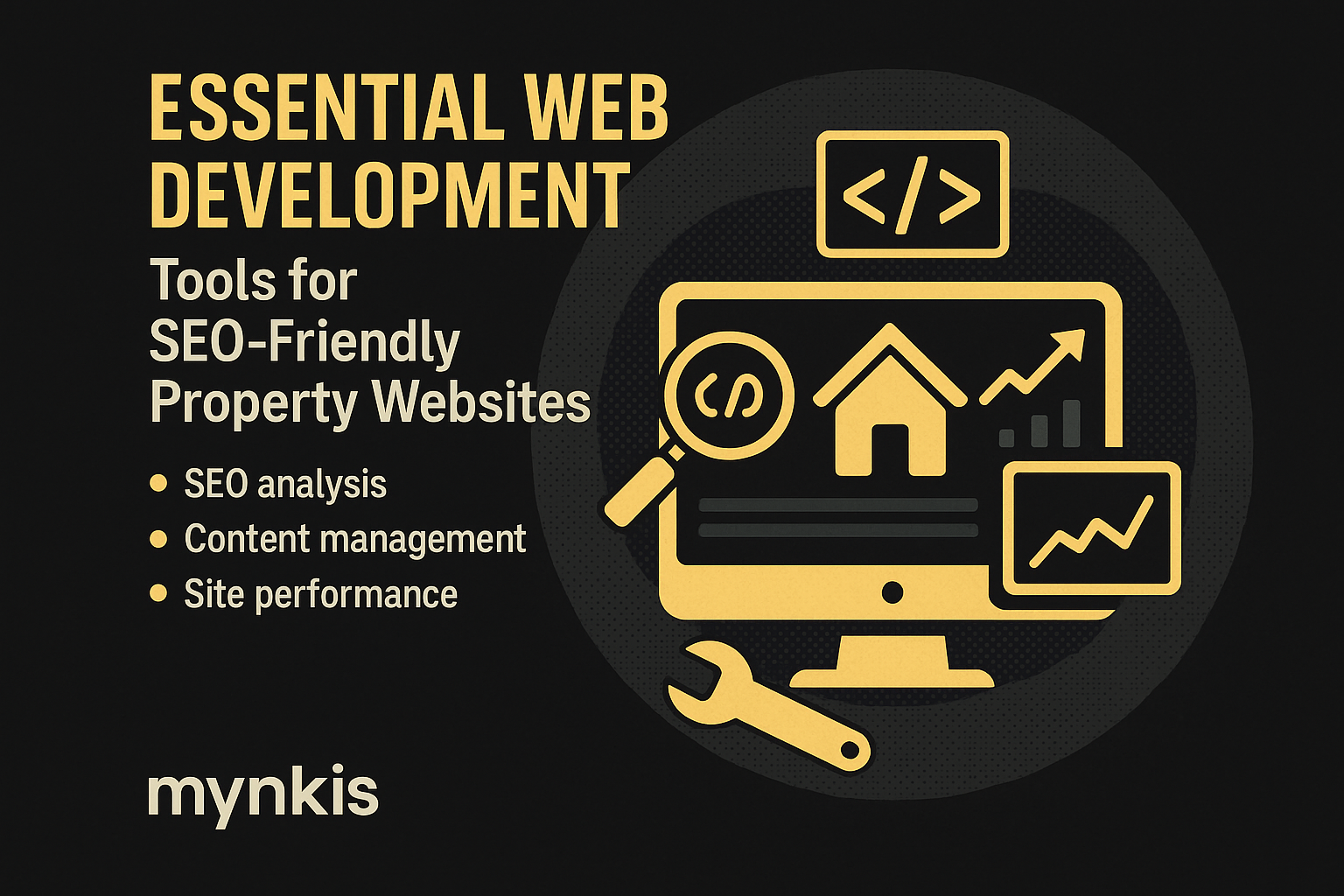Schedule a Demo
Let's dive straight into the heart of modern web development—how to maximize your efficiency through the right tools. As a broker seeking to elevate your property listing website, the coding tools you use can dramatically impact both your development speed and your site's performance on search engines. Whether you're building from scratch or enhancing an existing platform, understanding and using the right tools can transform your project from challenging to seamless.
Integrated Development Environments (IDEs) are the backbone of any coder's toolkit. I've often seen developers underestimate the power of a well-suited IDE, especially for those crafting local SEO-friendly real estate websites. Tools like Visual Studio Code or JetBrains WebStorm not only facilitate writing code more quickly but also enhance functionality with features like auto-completion, debugging, and version control integration. Personally, I lean towards Visual Studio Code for its versatility and wide array of extensions that can be tailored specifically for SEO and website performance analysis.
In my work with clients aiming to boost their local search rankings, one indispensable tool that I always recommend is Git for version control. Git allows developers to track changes, revert to earlier versions, and collaborate more effectively, which is crucial when multiple developers work on your property listing site. This tool not only ensures consistency and reduces errors but also helps in managing different versions for various regional SEO strategies.
The use of front-end frameworks can significantly speed up the development of your site. When I think about the projects I've been involved in, frameworks like React and Vue.js stand out. They not only expedite the coding process but also bring a high level of structure and reusability to your web components. A structured approach aids in building an SEO-friendly site where each component can be optimized for local queries without compromising site speed or user experience.
For the server-side operations of your property listing website, choosing the right back-end framework is key. In my experience working on enterprise solutions, frameworks like Node.js and Django have been game-changers. They enable faster development of scalable and efficient back-end systems, which are essential for handling large databases of real estate listings and supporting your SEO strategies through fast load times and dynamic content.
Application Programming Interfaces (APIs) can be a goldmine for enhancing your site's functionality and thus its search engine rankings. From integrating mapping services to connecting with local real estate databases, APIs like Google Maps API or Zillow API are crucial. In my practice, the strategic use of APIs has directly improved client site functionalities, aligning them closely with user search behavior and boosting local SEO for property queries.
I've found that optimizing for performance is as crucial as any other development task, especially when targeting high SEO rankings for local queries. Tools like Google PageSpeed Insights and Lighthouse are invaluable. They provide actionable insights into loading times, mobile usability, and overall page performance—all of which are critical SEO factors. Integrating these tools early in the development process ensures your property listing website remains agile and SEO-friendly.
Automated testing tools like Jest or Selenium can transform the quality and reliability of your code. In my career, integrating automated tests has not only saved countless hours in debugging but also improved the user experience, which in turn positively impacts SEO metrics like bounce rate and session duration. For a real estate website, ensuring smooth operations and glitch-free browsing is crucial for maintaining user engagement and boosting search rankings.
Employing a CMS like WordPress or Joomla can provide unparalleled flexibility in managing and updating your property listings. In my work with various businesses, I've seen how a well-chosen CMS can simplify SEO tasks like managing meta tags, generating sitemaps, and optimizing images—tasks that are essential for enhancing your site's local SEO effectiveness.
Given your focus as a broker on enhancing local search rankings, SEO tools become integral. Tools like Ahrefs or SEMrush offer insights into your site's SEO health, keyword rankings, and backlink profiles. In my practice, leveraging these tools has directly improved clients' search visibility, especially when targeting geo-specific keywords related to properties. Remember, while these tools provide data, the implementation of their recommendations in web development is what turns that data into SEO success.
Efficient collaboration among your development team is crucial, especially when enhancing your site's local SEO features. Tools like Slack and Trello have, in my experience, dramatically improved project timelines and site quality. They help in real-time communication and task tracking, ensuring all parts of your website development are aligned with your SEO objectives.
Choosing the right tools and mastering them is a balancing act. From my vantage point, the most successful projects are those where developers not only have proficiency in their tools but also a deep understanding of SEO and local search optimization needs. This dual focus is essential for brokers aiming to improve their listing website's performance in local search results.
The landscape of web development and SEO is ever-evolving. Staying informed and continually learning is crucial. Based on the latest trends and research, attending webinars, engaging with online tech communities, and regularly updating your tools and skills can keep your property listing website at the forefront of both technology and SEO performance. Individual experiences may vary, so always test and adapt strategies to your specific context.
